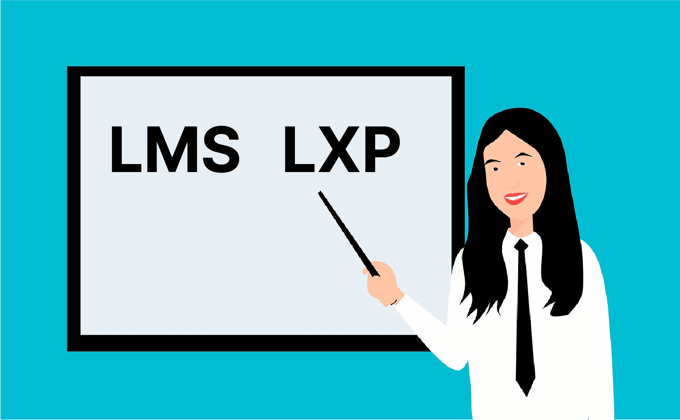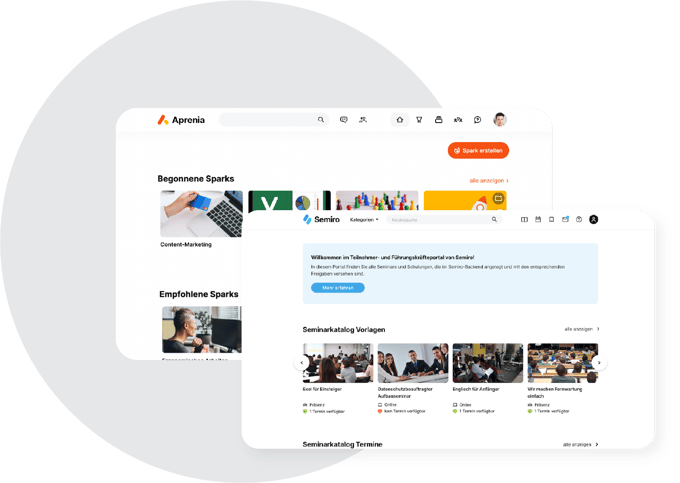The future of learning
Digitization is omnipresent and also brings with it many changes in the world of work and education that need to be taken into account. An LMS in connection with an LXP offers the decisive advantage!

Digitization in the professional world
The digitization of the professional world is of particular importance.
This new model, the use of digital technologies, brings with it considerable simplifications in many areas. Customer orders can be processed more quickly and reach the target, the customer, more quickly.
The same applies to information or work instructions.
Digitization facilitates communication in many ways.
But how do you sensibly record knowledge about tasks, processes or typical errors so that the information is accessible to everyone?
The digitization of business processes has profound effects on the working world of the employees and thus also on the qualification requirements for them.
Learning management systems help to manage such challenges, to use time more effectively and efficiently and to generate added value for the quality of information.

Learning and teaching are changing - companies rely on an LMS
With well thought-out knowledge and learning management (LXP or LMS) in the company, entrepreneurs can gain a decisive advantage over the competition and react quickly, for example if someone from the team drops out and tasks have to be redistributed.
Social Learning management systems help to manage such challenges, to use time more effectively and efficiently and to generate added value for the quality of information.

LMS & LXP – We create the overview
The focus is on the seminar organizer, who provides the content for the users, and process management.
This is usually based on a top-down approach, in which learning content prepared by the human resources or corporate learning department is distributed throughout the company.
Accordingly, most LMS are designed more functionally to be able to map the complexity appropriately and are therefore more of a type of platform suitable for theoretical learning material.
With the newer Learning Experience Platforms (LXP), on the other hand, the focus is on the learner and his or her learning success.
It should be fun to share knowledge and learn new things.
The user is integrated into a community of learners who, with the help of artificial intelligence and intuitive gamification , are animated and motivated both actively and interactively through playful elements to learn and independently provide knowledge.
This concept enhances the learning experience and breaks down the learning barriers that most face.
New content should be created quickly and easily by learners and made accessible to the learning community.

Combine both solutions to achieve maximum efficiency for your business!
The goal of an LXP is not to replace the LMS.
On the contrary: Both solutions focus on different strengths, which combined in a corporate culture can give you a decisive advantage over the competition.
The increasing success of the company is based on the commitment of the employees.
While the focus of an LMS is based on the hierarchically specified structure and provides the necessary training information digitally as e-learning, the goal of an LXP is to motivate employees to exchange knowledge independently and to strengthen internal cooperation.
The LXP favors setting up discussions or message systems.
The LXP U2D Aprenia supports people's natural instinct to play with the help of modern gamification and intuitive features.
For example, with the powerful Expert Q&A component, Aprenia not only makes it possible to centralize specialist knowledge in the company, but also to identify gaps in knowledge.
It's about being able to maintain a relationship regardless of the media used for learning.
That way, the learner is not on their own, knowing that someone is willing to help them.
